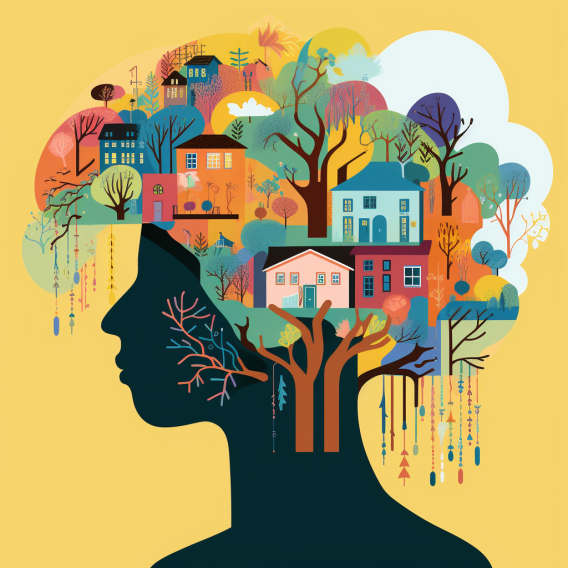Mental health is a crucial component of overall well-being, and communities play a pivotal role in fostering an environment that supports mental health. This article explores strategies and initiatives that promote mental well-being, build resilience, and create a supportive community framework.
Raising Awareness and Education
1. Community Workshops and Seminars
Organizing workshops and seminars on mental health topics helps raise awareness. Educating residents about the importance of mental health, common mental health issues, and available resources reduces stigma and encourages open conversations.
2. School-Based Mental Health Programs
Implementing mental health programs in schools is essential. These programs can include awareness campaigns, counseling services, and educational modules to equip students with the tools to manage their mental well-being.
3. Community Resource Centers
Establishing community resource centers provides a centralized hub for mental health information. These centers can offer pamphlets, workshops, and access to mental health professionals, ensuring that residents have easy access to valuable resources.
Creating Supportive Environments
4. Community Support Groups
Facilitating support groups creates spaces where individuals facing similar challenges can connect. Whether for grief, anxiety, or other mental health concerns, support groups offer a sense of community and understanding.
5. Mental Health Allies Program
Implementing a mental health allies program trains community members to be supportive listeners and advocates. These allies can provide assistance, information, and encouragement to those struggling with mental health issues.
6. Workplace Mental Health Initiatives
Collaborating with local businesses to implement workplace mental health initiatives is crucial. Creating supportive work environments, offering mental health days, and providing access to counseling services contribute to overall community well-being.
Accessibility to Mental Health Services
7. Community Mental Health Clinics
Establishing community mental health clinics ensures accessible services. These clinics can offer counseling, therapy, and psychiatric support, reducing barriers to entry for those seeking professional mental health assistance.
8. Telehealth Services
Integrating telehealth services increases accessibility, especially in areas with limited resources. Virtual counseling sessions, online support groups, and mental health apps provide convenient options for community members.
9. Collaboration with Mental Health Professionals
Collaborating with mental health professionals ensures a network of support. Establishing partnerships with psychologists, counselors, and therapists helps create a comprehensive mental health ecosystem within the community.
Overcoming Stigma and Fostering Inclusivity
10. Anti-Stigma Campaigns
Launching anti-stigma campaigns challenges misconceptions about mental health. These campaigns aim to normalize discussions around mental well-being, encouraging individuals to seek help without fear of judgment.
11. Cultural Competency Training
Providing cultural competency training to mental health professionals ensures inclusivity. Recognizing and respecting diverse cultural perspectives on mental health promotes an environment where everyone feels understood and supported.
12. Youth Engagement Programs
Engaging youth in mental health initiatives is vital. Youth-led programs, peer support networks, and mental health education in schools empower young individuals to be advocates for mental well-being.
Success Stories in Community Mental Health
13. Community-Based Resilience Programs
Communities with successful resilience programs have seen positive outcomes. These programs focus on building coping mechanisms, fostering social connections, and creating a sense of community resilience.
14. Art and Expressive Therapy Programs
Implementing art and expressive therapy programs has proven effective. Creative outlets such as art, music, and drama provide alternative means of expression and therapeutic benefits for individuals facing mental health challenges.
The Future of Community Mental Health
15. Digital Mental Health Platforms
Integrating digital mental health platforms enhances accessibility. Mobile apps, online counseling services, and virtual support groups offer convenient options for individuals to prioritize their mental well-being.
16. Community Mental Health Assessments
Conducting community-wide mental health assessments identifies specific needs. These assessments can inform the development of targeted mental health programs, ensuring that resources are allocated where they are most needed.
Conclusion
Promoting mental health in communities is a collective effort that involves raising awareness, fostering support, and ensuring accessibility to services. By creating an environment that prioritizes mental well-being, communities can build resilience, reduce stigma, and provide essential resources for individuals facing mental health challenges. Through continuous education, advocacy, and collaboration, communities can become pillars of support for mental health, contributing to the overall health and vibrancy of their residents.



